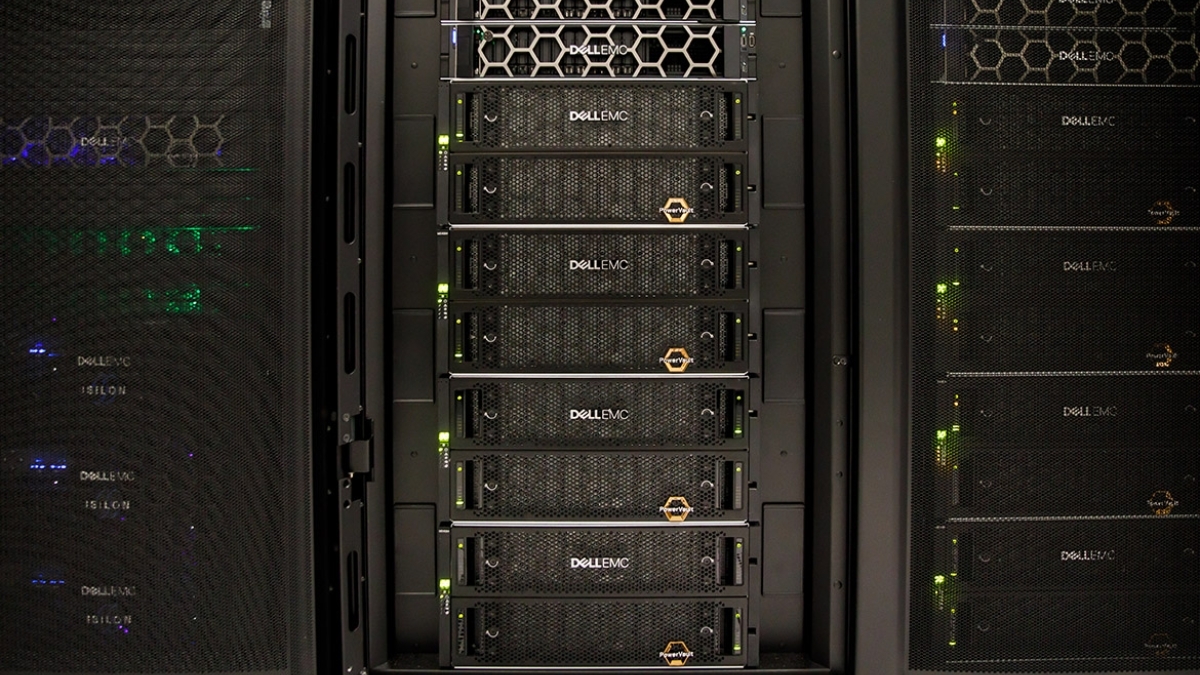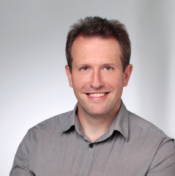Professor revolutionizes virtual learning with supercomputer experience for online students

The Sol supercomputer. Photo by Andy DeLisle
Imagine having the power of a supercomputer at your fingertips, no matter your location in the world. Now, Arizona State University students don’t have to.
School of Molecular Sciences Assistant Professor Matthias Heyden has launched a new research opportunity through the Online Undergraduate Research Scholars (OURS) program that allows students to remotely access and utilize, without charge, ASU’s powerful supercomputer (Sol), unlocking doors to unprecedented possibilities.
In his own work, Heyden uses supercomputer simulations to gain atomistic insights into molecular systems. The students working with him through the OURS program are using Sol to run high-performance calculations. Specifically, they are modeling the interactions between two very large proteins and how water potentially acts as a "glue" between them.
“This work is very complicated in that the interface with the supercomputer is not at all what students are used to,” Heyden said. “You can’t just use your mouse and click on stuff; there are no magic hand gestures.”
Ara Austin, a School of Molecular Sciences clinical associate professor and director of online engagement and strategic initiatives at The College of Liberal Arts and Sciences, praised Heyden for his efforts.
“Matthias has developed a novel, authentic research opportunity that online students from all over the world can engage in remotely,” said Austin, who also oversees the OURS program. “This opportunity has helped so many online students to pursue their goals of attending graduate-level programs in the sciences. ASU is fortunate to have dedicated faculty mentors like Matthias who are championing student success."
Kevin Sinwelski is the first to admit that he is not a great programmer and that he has never had much patience with writing code. However, deciphering simulation data and studying molecular interactions is fascinating to him, so he pursued the OURS program research opportunity with Heyden anyway.
“As an online student, I think this is an ideal opportunity to participate in research because it can be done from anywhere; the computations are done on Sol and we can submit jobs from anywhere,” Sinwelski said.
Nancy Gonzalez, who had previously taken Heyden’s physical chemistry course, was also very excited — not only to find a research opportunity at ASU that would allow her to participate remotely as an online student, but to have the chance to engage with Heyden again.
“The subject material was fascinating, but the best part was Professor Heyden’s engagement with the students, his approachability and his excitement about science,” Gonzalez said.
Through the OURS program, Gonzalez has gained exposure to computational work that is completely new to her. She said it has been challenging but exciting to learn a new skill.
Another student, Ty Ray Graham, enthusiastically agrees. "For me, this has been a life-changing opportunity to be a part of an actual research project. I want to study genetics, so this is a fantastic advancement for me."
Biological sciences undergrad Matthew Marx echoed his fellow students’ sentiments.
“Having these types of experiences available to not only undergraduates, but online undergraduates, really sets ASU apart,” Marx said. “Being able to take part in meaningful research as a remote student is honestly such a huge privilege and honor. We are on the very forefront of human knowledge. Is there anything cooler than that?”
More University news

3 ASU students earn Goldwater Scholarships for STEM research excellence
Three Arizona State University students have been named Goldwater Scholars for 2025, placing them among the nation’s most promising undergraduates pursuing research careers in science, engineering…

Provost Teaching Awardees, Charter Professors empower local communities, students
The ASU Charter embodies the university’s commitment to student success and research of public value and responsibility to the community. In recognition of its importance, each year, Executive…

New online Bachelor of Social Work program exceeding enrollment expectations
Social workers are in big demand.Citing U.S. Bureau of Labor Statistics figures, the National Association of Social Workers projected the profession will grow 7% by 2033, faster than the average for…


